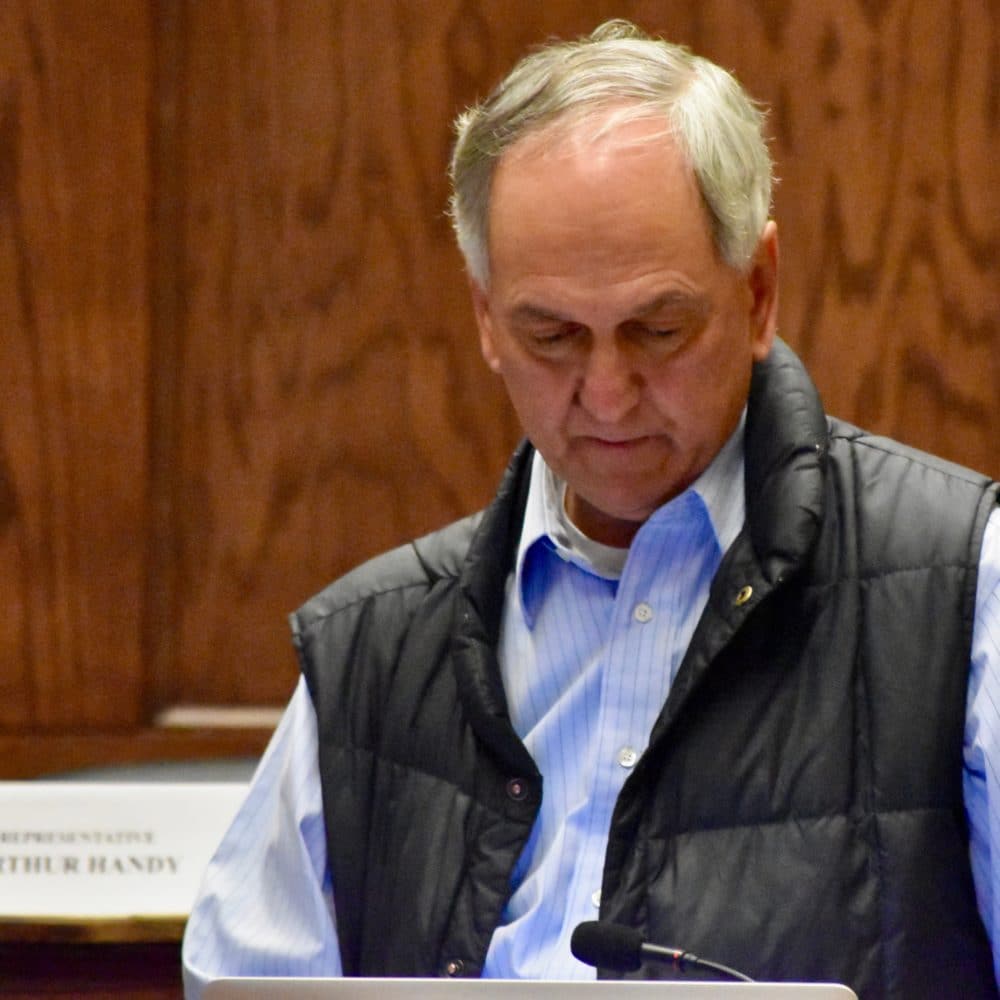The Energy Facilities Siting Board needs to be adapted to a post fossil fuel world
House Bill 8120 is necessary to move us away from fossil fuels for the production of electricity in our state. As a study commission member, and an active environmentalist I and others worked towards adding elements to the existing authority modeled by other states such as Massachusetts, New Hampshire and the State of Washington. What is exciting to me and
May 3, 2018, 4:34 pm
By Paul Roselli
House Bill 8120 is necessary to move us away from fossil fuels for the production of electricity in our state. As a study commission member, and an active environmentalist I and others worked towards adding elements to the existing authority modeled by other states such as Massachusetts, New Hampshire and the State of Washington.
What is exciting to me and the organizations I represent is that we, you, have a chance to make a sea change in how the current Energy Facility Siting Act relates to the host community, the surrounding towns, the general public, jobs and economy in our state and to the environment.
This power plant proposed for the northwestern part of Rhode Island is a jobs and economy issue. For the past three years only attorneys and consultants have been employed in this process. No laborer, no painter, no electrician, nor engineer. If we had decided on August 1, 2015 to tell Invenergy to go away, pack up and go back to Chicago, we, as a state would have been better off, solved our wind and solar siting issues and start to reduce the nearly $3 billion dollars in lost revenue to the fossil fuel companies.
National Grid will say here today at these hearings that this bill will make the siting and permitting process more cumbersome and more complex.
As was mentioned earlier, this legislation is modeled from other states that feel that transparency, citizen input, stakeholder involvement and host community needs to control their own destiny are not ‘burdens’ but are opportunities to help solve and address an already difficult process. The fossil fuel industry is already gearing up for a battle that will pit their members against what they are calling ‘green elitists’ when in fact most union members like to hunt, fish, take their family camping and support through their votes open space bond referendums.
While others, and I am one of them, have called for the elimination of the Energy Facility Siting Board as being unnecessary in a fossil free world, I believe this compromise legislation fills our needs for now.
Highlights of the bill include the following:
- Increasing the size of the EFSB from its current 3 members to 9 members;
- Changing the makeup of the board to include engineers, environmentalists, laborers, citizens;
- Adding a public advocate for citizens, the environment and on environmental justice matters;
- Compensation for all those on the board so as to include ordinary citizens from all economic strata;
- Including state agencies from the Rhode Island Department of Health, the Rhode Island Attorney General’s office and elected officials from the host community;
- Direct reports from the host community as to the consistency of the proposed facility with all local ordinances, regulations, standards and criteria that apply;
- Including carbon-emissions-reduction goals set forth in the Resilient Rhode Island Act;
- Conducting a review of the EFSB standards and practices every two years;
- and, a greater transparency in all the processes conducted by the EFSB.
We ask in addition to the stated changes in the House bill 8120 that the following be included:
- Give authority to the EFSB chair to establish up to 7 member subcommittees to include the agency members and the public members to consider applications, petitions, declaratory rulings, engineering plans, environmental impacts, etc. This is to provide greater transparency of all the proceedings so as to not wait till the final hearings for this information to be heard;
- Give authority to the EFSB chair to be allowed to respond to citizens’ comments during public hearings;
- Require the EFSB Chair to make a finding that the issuance of a certificate will serve the public interest;
- Set a stipend for the public members at $38.50 per hour of their participation on the board or sub- committees. Fees would be paid for by the applicant;
- Within a prescribed amount of time, include in this legislation that the EFSB will no longer accept any and all fossil fuel power plant applicants for the production of electricity;
- Include consistency with other findings from both local, state and federal agencies. In other words, if the project’s location was rejected at another time, that rejection will carry forward;
- and, hire a full time coordinator for any and all projects with the authority of this legislation that would be paid for by the applicant






